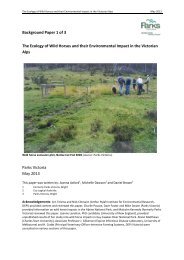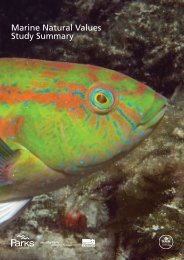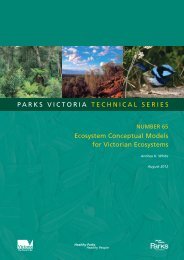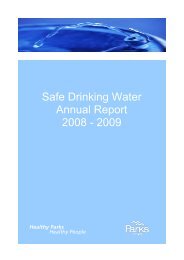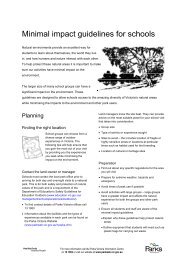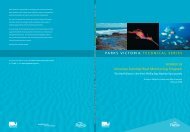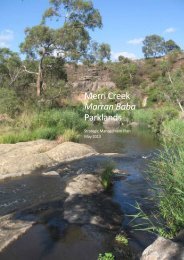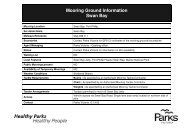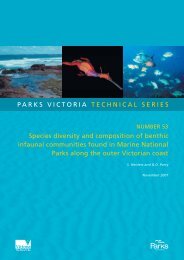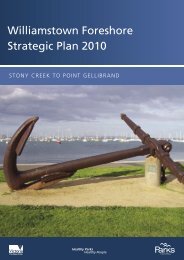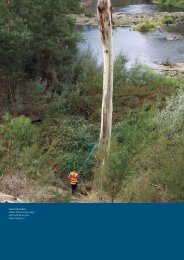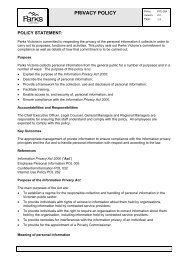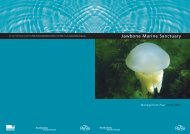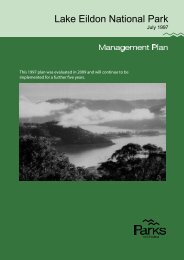parks victoria technical series marine natural values study vol 2 ...
parks victoria technical series marine natural values study vol 2 ...
parks victoria technical series marine natural values study vol 2 ...
You also want an ePaper? Increase the reach of your titles
YUMPU automatically turns print PDFs into web optimized ePapers that Google loves.
Parks Victoria Technical Series No. 79<br />
Flinders and Twofold Shelf Bioregions Marine Natural Values Study<br />
increased desiccation, storm wave exposure and habitat shift. Changes in the relationship<br />
between climate and annual life-history events may force major change in functional groups<br />
and consequent ecosystem function (Fine and Franklin 2007). Climate change is also<br />
anticipated to modify species recruitment and habitat connectivity, species interactions and<br />
disturbance regimes in the <strong>marine</strong> environment (CSIRO-BoM 2007; Fine and Franklin 2007).<br />
A number of species are at the eastern or northern limit of their distributional range at Point<br />
Hicks and such species would be particularly vulnerable to climate change. In contrast, the<br />
urchin Centrostephanus rodgersii, which is found in Point Hicks MNP, has increased its<br />
range down the east coast of Australia to Tasmania and that increase is thought to be linked<br />
to climate change with the EAC extending further south (Banks et al. 2010).<br />
Figure 28. Black urchins Centrostephanus rodgersii and yellow zoanthid corals in Point Hicks Marine<br />
National Park. Photo by Mark Norman, Museum of Victoria.<br />
Measures to address or minimise these hazards form part of the management plan for Point<br />
Hicks MNP (Parks Victoria 2006f). For example research is being conducted into <strong>marine</strong><br />
pest species that may impact on park <strong>values</strong>, which includes identifying the MPAs which are<br />
most at risk of invasion.. Parks Victoria has also undertaken a strategic climate change risk<br />
assessment to identify the risks and stressors to <strong>natural</strong> <strong>values</strong> in the MPAs through<br />
assessment at the habitat level for <strong>parks</strong> in each <strong>marine</strong> bioregion. Parks Victoria will use an<br />
adaptive management approach to develop responses and actions that focus on priority<br />
climate change issues such as extreme weather events and existing risks that will likely be<br />
exacerbated by climate change.<br />
64



